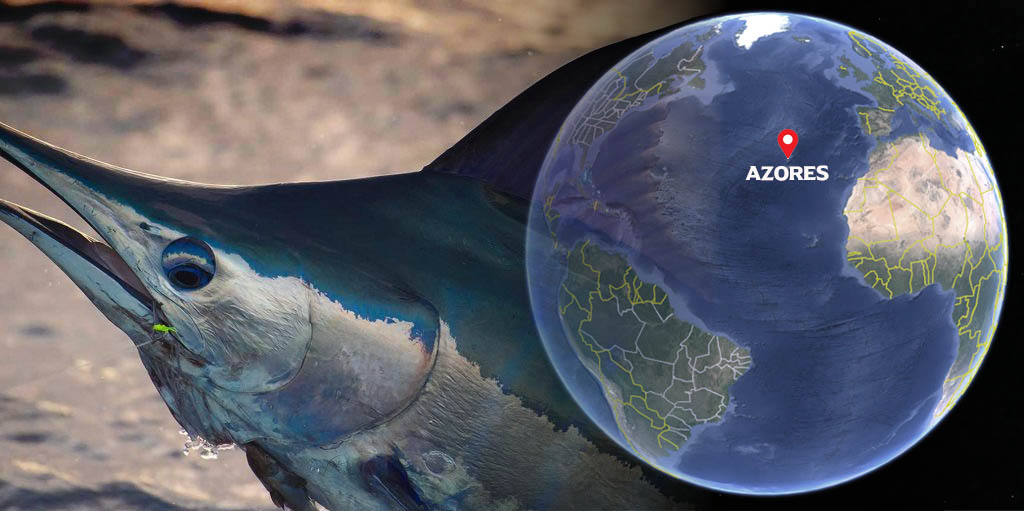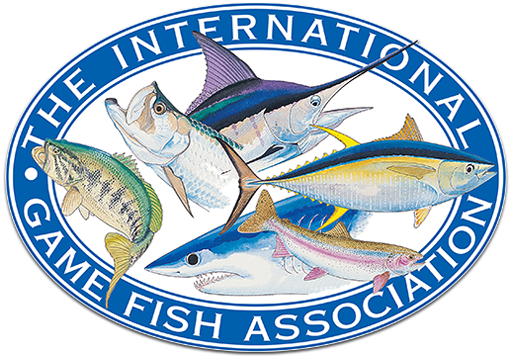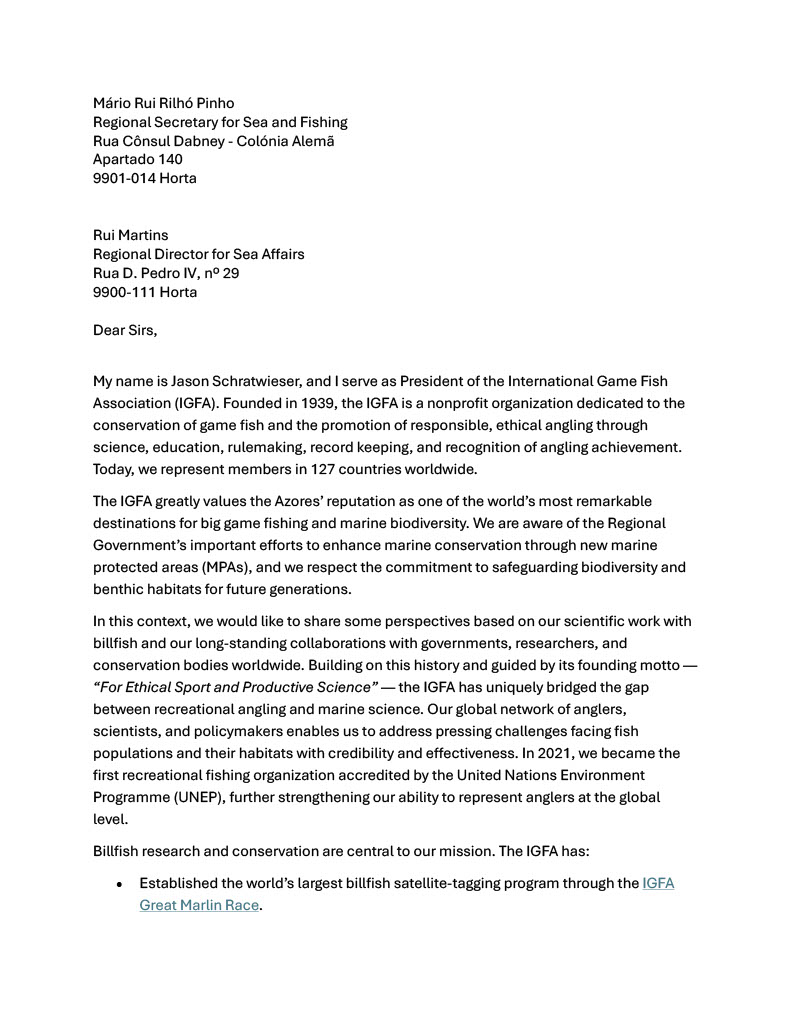IGFA Responds to Marine Protected Area Closures in the Azores

The IGFA is weighing in on a developing issue in the Azores, a Portuguese archipelago in the north Atlantic, and a world-class marlin fishing destination. The Azores and the giant blue marlin that are caught there draw billfish anglers from across the globe in the summertime, but, unfortunately, new spatial closures in the form of Marine Protected Areas (MPAs) are being implemented that would prevent marlin fishing on the most productive seamounts in the region.
The Regional Government of the Azores, in its efforts to conserve biodiversity and protect bottom habitats, has established a network of spatial closures across the Azorean Island chain. While the IGFA supports efforts to conserve ocean resources and biodiversity using the best scientific information, restricting access to surface-oriented recreational marlin fishing that has no impact on biodiversity or interaction with benthic habitats will not aid in achieving conservation goals. This is especially true considering the vast majority of marlin caught in these regions are released alive and survive the process more than 86% of the time. Catch and release billfish fishing is not only a sustainable practice, but it also generates millions for local economies, especially in the Azores.
Jason Schratwieser, IGFA’s President, recently sent the letter below (click the button below to read) to Azorean authorities outlining the importance of the recreational marlin fishery in the Azores and providing suggestions to ensure a well-regulated and economically viable billfish fishery for the benefit of both the Azores and recreational anglers.


